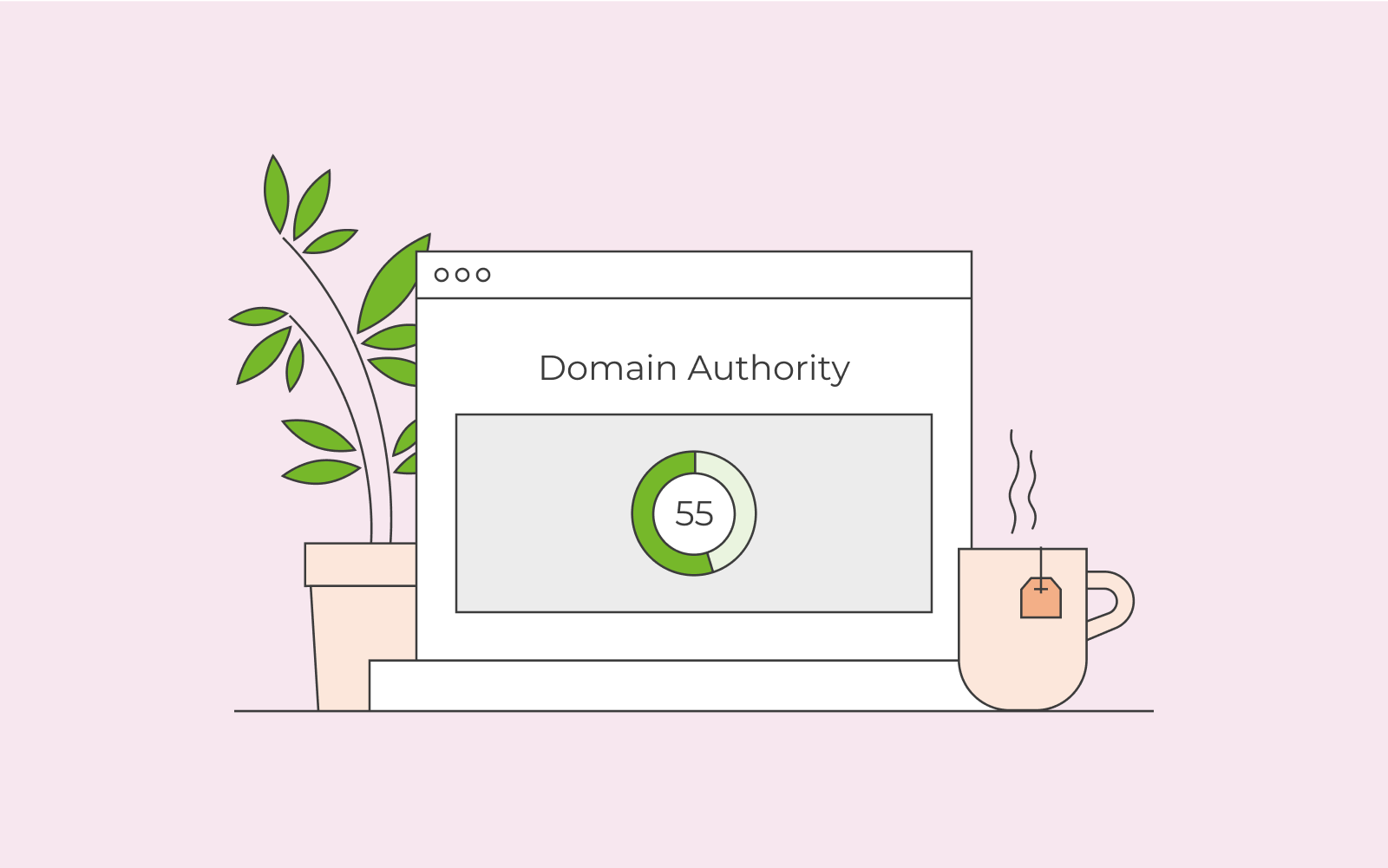What is domain authority?
Find out how you can increase your domain authority?
Domain authority is a 1 to 100 scaled scoring system. The system was created to help predict how well a website can rank on Google. The algorithm of the system is similar to how Google ranks a website.
Brief Summary
Domain Authority is a score that is invented by Moz that predicts how likely a website is to rank well in search engines. Other SEO tools like Semrush and Ahrefs have their own variation on this. It’s not a Google ranking factor.
Domain authority and page authority are similar; the only difference is that page authority relates to one specific page on the website.
The aim is to score high in the scoring system and have a good domain authority as a website owner.

How does domain authority work?
As mentioned above, the system is similar to Google’s way of ranking websites on its search engine. To give an example of a really good domain authority score: Google and Facebook have a score of 99.
As your domain authority score gets higher, it’ll get increasingly harder to continue climbing the ladder and increasing the score further. If you’re a new website owner, you’ll only need to have your website up and active for one year, and your score will increase from 0 to 10. Going from 10 to 20 will require some work. Increasing the score from 20 to 30 is where you need to start optimising your content and try to get more traffic to your website. If you want to increase your score from 30, you need to continuously optimise your website, especially the content. Gaining backlinks will also do a lot for your domain authority.

What is good domain authority?
A good domain authority score depends on your business and industry. For example, if your competitors have a score of 70, you know that you need to ensure that your domain authority matches your competitors. However, if they are at 30, you know that you can increase your score to match theirs and even dominate the field and outrank them to climb above your competitors.
How to increase domain authority?
There are activities you can do continuously that can increase your domain authority over time. Below we’ve listed two key activities you should implement to increase your chances.
Content
Create quality content regularly. If you sell clothes on your website, you should create quality content that matches your niche. For example, you can write an article about why a specific clothing material is better for the customer or why it’s better to use faux fur than real fur.
By creating quality content, Google will crawl your website much more frequently. If you don’t update as often and your website is stagnant, Google will likely pause crawling your website.
Google loves it when you’re active on your website and are constantly producing.
Tip:
- Stay focused.
- Ensure that everything you’re writing and creating is related to your business and what you’re selling.
Don’t divert; create content that relates to your business. Your authority score is based on your niche, so focus on that.

Links and mentions
As mentioned above, if people link to your website, it indicates to Google that your content is really good and trustworthy. Additionally, if you have good, trustworthy content, you’ll score higher on your domain authority. Therefore, it’s good if you put effort into gaining relevant links to your website.
You should also aim to get media mentions. If a website with high domain authority mentions your website, for example, your local newspaper’s website, that will increase your domain authority.
How to find your domain authority score?
You’re probably ready and eager to start increasing your domain authority score. But what is your current domain authority score? You need a domain authority checker. Go to Moz.com and use their link explorer tool that you can use for free. It’ll show you your domain authority, page authority for various pages on your website, and even backlinks.

Look into other website’s domain authority
By looking at your competitors, you can get a sense of what they are doing that you’re not doing. Try to see what areas you can improve on your website by looking at your competitors.
Additionally, if you want to do some link building, you can check the domain authority of that particular website to see how link-worthy their website is and if it’s worth spending time on it.
